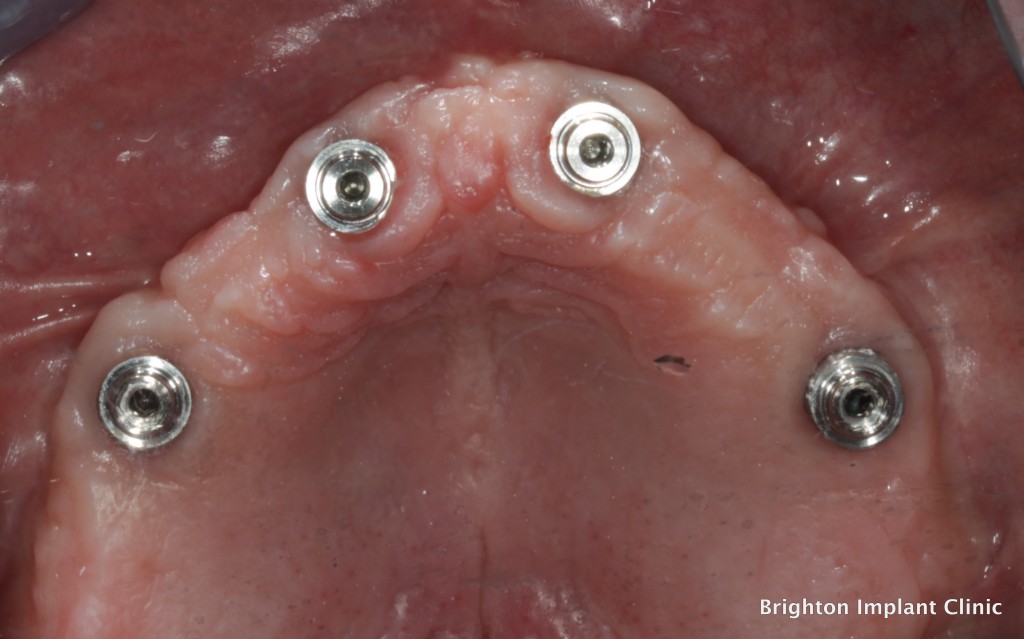Unfortunately dental implants problems can sometimes occur. Even if you have followed the recommendation of seeing an experienced surgeon or specialist and have maintained excellent oral hygiene dental implants problems may still arise. It is not uncommon to have dental pain and discomfort soon after dental implant surgery. Sometimes having dental implants problems may be unavoidable. 95%-98% of dental implant treatments are successful however a small percentage may fail. The best advice is to consult with your dentist how to solve the dental implants problems. If you are concerned that your dental implant is failing, you should immediately go to your dental clinic.
The most common dental implants problems are infection. If the infection is still in its early stage, your dentist may recommend taking some antibiotics. It is important to note that antibiotics should only be used for specific cases and for a limited time frame. A persistent dental implant infection is not a good sign and should be discussed with your dental implant surgeon as soon as possible. A possible outcome is if the implant needs to be removed. Even though this would be bad news a dental implant may be repeated after 4-6 months. Sufficient time needs to be given to the surrounding bone to heal before an implant can be replaced.
Another dental implants problems are if the dental implant fails to fuse with the bone. In this case, the dental implant will need to be removed. Sometimes there is no infection and there is no sign of pain or discomfort. The patient may not be aware that the implant has not integrated with the bone. Usually your dentist will make sure that the implant has healed by taking radiographs of the implant and also testing if there is any movement in the implant itself. If after the healing period there is movement in the implant itself, it may be a sign that the implant has failed. After removing the implant the area should be allowed to heal for 4-6 months. If you want to undergo the surgery once again, you need to wait after the area has healed completely. There are many factors attributed to these dental implants problems. It can be caused by incompatibility of the metal to fuse to the bone or there isn’t enough bone to begin with. If there isn’t enough bone, bone grafting may be required.
If the dental implants problems are nerve damage during dental implant surgery, you will need to consult an oral and maxillofacial surgeon. This problem is mostly encountered in back area of the lower jaw. This problem can cause some pain and discomfort in the nerve area while making the lower jaw numb.
At Brighton Implant Clinic we have a web-page outlining the do’s and don’ts following dental treatment. For further information please visit Brighton Implant Clinic. If you experience any kind of dental implants problems with your dental implants, you should immediately seek medical/dental advice. This will not only solve the problem, but will also help prevent further damage in the implants and affected area.


